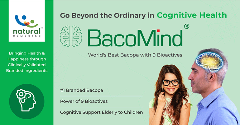News
Research: added sugar fuelling diabetes epidemic
2 Feb 2015Recent studies have shown that added sugars, particularly those containing fructose, are a principal driver of diabetes and pre-diabetes, even more so than other carbohydrates. Clinical experts writing in Mayo Clinic Proceedings challenge current dietary guidelines that allow up to 25% of total daily calories as added sugars, and propose drastic reductions in the amount of added […]

 Recent studies have shown that added sugars, particularly those containing fructose, are a principal driver of diabetes and pre-diabetes, even more so than other carbohydrates. Clinical experts writing in Mayo Clinic Proceedings challenge current dietary guidelines that allow up to 25% of total daily calories as added sugars, and propose drastic reductions in the amount of added sugar, and especially added fructose, people consume.
Recent studies have shown that added sugars, particularly those containing fructose, are a principal driver of diabetes and pre-diabetes, even more so than other carbohydrates. Clinical experts writing in Mayo Clinic Proceedings challenge current dietary guidelines that allow up to 25% of total daily calories as added sugars, and propose drastic reductions in the amount of added sugar, and especially added fructose, people consume.
Worldwide, approximately one in ten adults has type 2 diabetes, with the number of individuals afflicted by the disease across the globe more than doubling from 153 million in 1980 to 347 million in 2008. In the United States, 29 million adults (one in eleven) have type 2 diabetes and another 86 million (more than one in three) have pre-diabetes.
“At current levels, added-sugar consumption, and added-fructose consumption in particular, are fueling a worsening epidemic of type 2 diabetes,” said lead author James J. DiNicolantonio, a cardiovascular research scientist at Saint Luke’s Mid America Heart Institute, Kansas City, MO. “Approximately 40% of U.S. adults already have some degree of insulin resistance with projections that nearly the same percentage will eventually develop frank diabetes.”
The net result of excess consumption of added fructose is derangement of both overall metabolism and global insulin resistance say the authors. Other dietary sugars not containing fructose seem to be less detrimental in these respects. Indeed, several clinical trials have shown that compared to glucose or starch, isocaloric exchange with fructose or sucrose leads to increases in fasting insulin, fasting glucose, and the insulin/glucose responses to a sucrose load. “This suggests that sucrose (in particular the fructose component) is more harmful compared to other carbohydrates,” added Dr. DiNicolantonio. Dr. DiNicolantonio and his co-authors, James H O’Keefe, MD, Saint Luke’s Mid America Heart Institute, Kansas City, MO, and Sean C. Lucan, MD, MPH, MS, a family physician at Montefiore Medical Center, Albert Einstein College of Medicine, Bronx, NY, examined animal experiments and human studies to come to their conclusions.
Data from recent trials suggest that replacing glucose-only starch with fructose-containing table sugar (sucrose) results in significant adverse metabolic effects. Adverse effects are broader with increasing baseline insulin resistance and more profound with greater proportions of added fructose in the diet.
The totality of the evidence is compelling to suggest that added sugar, and especially added fructose (usually in the form of high-fructose corn syrup and table sugar), are a serious and growing public health problem, according to the authors.
The 2010 Dietary Guidelines for Americans say it is acceptable for some people to consume up to 19% of calories from added sugars, and the Institute of Medicine permits up to 25% of total calories from added sugars. In contrast, the World Health Organization recommends that added sugars should make up no more than 10% of an entire day’s caloric intake, with a proposal to lower this level to 5% or less for optimal health. Such levels would be more in line with what the authors would recommend and similarly restrictive to existing American Heart Association (AHA) recommendations–to consume no more than six teaspoons (24 grams) of sugar per day for women and no more than nine teaspoons (36 grams) of sugar per day for men.
While fructose is found naturally in some whole foods like fruits and vegetables, consuming these foods poses no problem for human health. Indeed, consuming fruits and vegetables is likely protective against diabetes and broader cardiometabolic dysfunction, explained DiNicolantonio and colleagues. The authors propose that dietary guidelines should be modified to encourage individuals to replace processed foods, laden with added sugars and fructose, with whole foods like fruits and vegetables. “Most existing guidelines fall short of this mark at the potential cost of worsening rates of diabetes and related cardiovascular and other consequences,” they wrote.
The authors also think there should be incentives for industry to add less sugars, especially fructose-containing varieties, to food-and-beverage products. And they conclude that at “an individual level, limiting consumption of foods and beverages that contain added sugars, particularly added fructose, may be one of the single most effective strategies for ensuring one’s robust future health.”
Related news

Has ‘clean’ had its day?
22 Dec 2025
Wielding clean-label positioning and fortification as marketing levers is a dangerous strategy, and brands would be better off explaining the hows and whys of the ingredients in their products, say experts.
Read more
Celebrating the winners of the Fi Europe Innovation Awards 2025
3 Dec 2025
Food industry stakeholders celebrated as the winners of the Fi Europe Innovation Awards were announced at a ceremony in Paris.
Read more
Alternative protein startups pivot to B2B ingredients amid funding shift
27 Nov 2025
Alt protein startups are pivoting from consumer meat analogues to high-value B2B ingredients, driven by stronger investor interest, better margins, and clearer commercial pathways.
Read more
Walmart Marketplace’s record growth prompts search for UK sellers
26 Sep 2025
Walmart’s third-party e-commerce platform, Marketplace, has witnessed extraordinary growth – but a need for more product diversity has prompted the retailer to recruit UK sellers.
Read more
The winners of Vitafoods Europe Startup Challenge 2025 revealed
29 May 2025
Four startups – Yomio Drops, PFx Biotech, Revobiom, and Favamole – took top prizes at this year’s Vitafoods Europe Startup Challenge awards.
Read more
East takes on West in the fight for future food flavours
30 Apr 2025
Asian and South American flavours are now key components on global menus, driven by a growing global appetite for culinary mashups.
Read more
Food companies urged to bring ‘joy’ and urgency to healthy food mission
14 Mar 2025
For too long, businesses have treated health and sustainability as separate agendas – but there is growing evidence to show diets that benefit human health can also enhance that of the planet, say experts.
Read more
Entries open for inaugural Vitafoods Europe Innovation Awards
29 Jan 2025
Entries are open for the inaugural Vitafoods Europe Innovation Awards, celebrating the ingredients, finished products, partnerships, and initiatives redefining the nutraceutical landscape.
Read more
Paris Olympics: Food and beverage brands champion health, fun, and sustainability
5 Aug 2024
Food and beverage brands are aligning with the Paris Olympics 2024 Food Vision, which emphasises sustainability, local sourcing, and plant-based diets.
Read more
Natural Remedies: Bringing health and happiness via validated branded ingredients
18 Apr 2024
Natural Remedies is an internationally renowned botanical healthcare company committed to advancing the field through rigorous research and the development of clinically validated Branded Ingredients. Guided by our foundational principle of ‘BEING USEF...
Read more